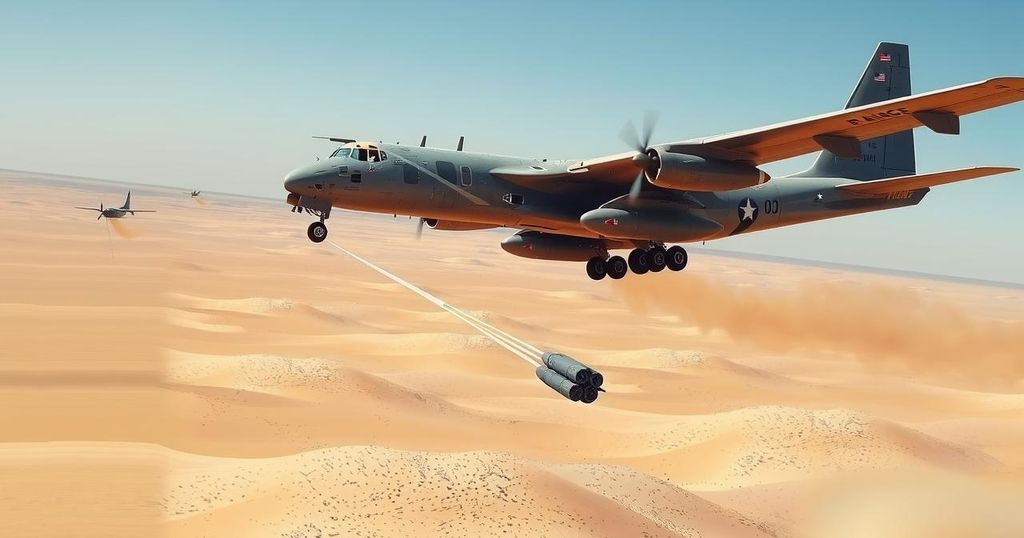U.S. Airstrikes Against Houthis in Yemen to Persist Indefinitely

U.S. airstrikes against Yemen’s Houthis will continue indefinitely following a significant military operation that has resulted in numerous casualties. The strikes aim to counter Houthi attacks on maritime shipping while asserting a tougher stance against Iran. This marks the initial use of U.S. military force by President Trump in the region, with potential regional implications as the conflict unfolds.
United States officials have confirmed that the airstrikes targeting Yemen’s Iran-backed Houthis will persist indefinitely, following the initial strikes that resulted in at least 31 fatalities and approximately 100 injuries. These military operations are intended to respond to Houthi assaults on shipping in the Red Sea and mark the first significant exercise of military force by President Donald Trump since assuming office in January.
Defense Secretary Pete Hegseth indicated that the airstrikes would cease only if the Houthis halt their attacks on American naval vessels, emphasizing a determined military response until that time. He remarked that “The minute the Houthis say ‘we’ll stop shooting at your ships, we’ll stop shooting at your drones’, this campaign will end, but until then it will be unrelenting.”
National Security Adviser Michael Waltz elaborated that these strikes effectively eliminated several senior Houthi leaders, employing significant military force to convey a message to Iran that their actions are unacceptable. President Trump, through his social media platform Truth Social, directed strong warnings to the Houthis, stating, “YOUR TIME IS UP, AND YOUR ATTACKS MUST STOP, STARTING TODAY.” He also urged Iran to cease its support for the Houthis immediately.
The Houthis, who have exercised considerable control in Yemen over the past decade, argue that their operations against international shipping are in solidarity with Palestinian groups such as Hamas, which is aligned with Iran. Israeli authorities are currently investigating missile launches possibly linked to the Houthis, prompting considerations of wider regional implications.
Iranian military leadership, asserting the autonomy of the Houthis, cautioned that any aggressive actions taken by the United States would prompt a decisive response from Iran. The Iranian Foreign Ministry condemned the U.S. airstrikes as violations of international law, calling for an end to American interference in Iranian affairs and urging for the cessation of violence against Yemeni civilians.
In response to the evolving military strategy, the U.S. Central Command described the strikes as merely the inception of a broader operation expected to extend over several weeks. The airstrikes were notably executed by fighter jets from the USS Harry S. Truman, which is active in the Red Sea region.
Despite prior attempts by the Biden administration to reduce Houthi capabilities, the current strikes underscore a more aggressive posture from the U.S. As the Houthis declared intentions to recommence attacks on Israeli maritime targets, officials reported that they had conducted over 300 assaults on U.S. and commercial vessels in recent months, highlighting the ongoing conflict’s complexity and potential for escalation.
In summary, the United States has initiated indefinite airstrikes against the Houthi movement in Yemen, aiming to respond to aggression towards shipping routes. This marks a decisive shift in U.S. military engagement under President Trump, with potential ramifications on Iranian relations and regional stability. As U.S. officials assert further operations will continue, the conflict remains a focal point of international concern, particularly regarding humanitarian impacts and responses from Iran and associated militant groups.
Original Source: www.theguardian.com








